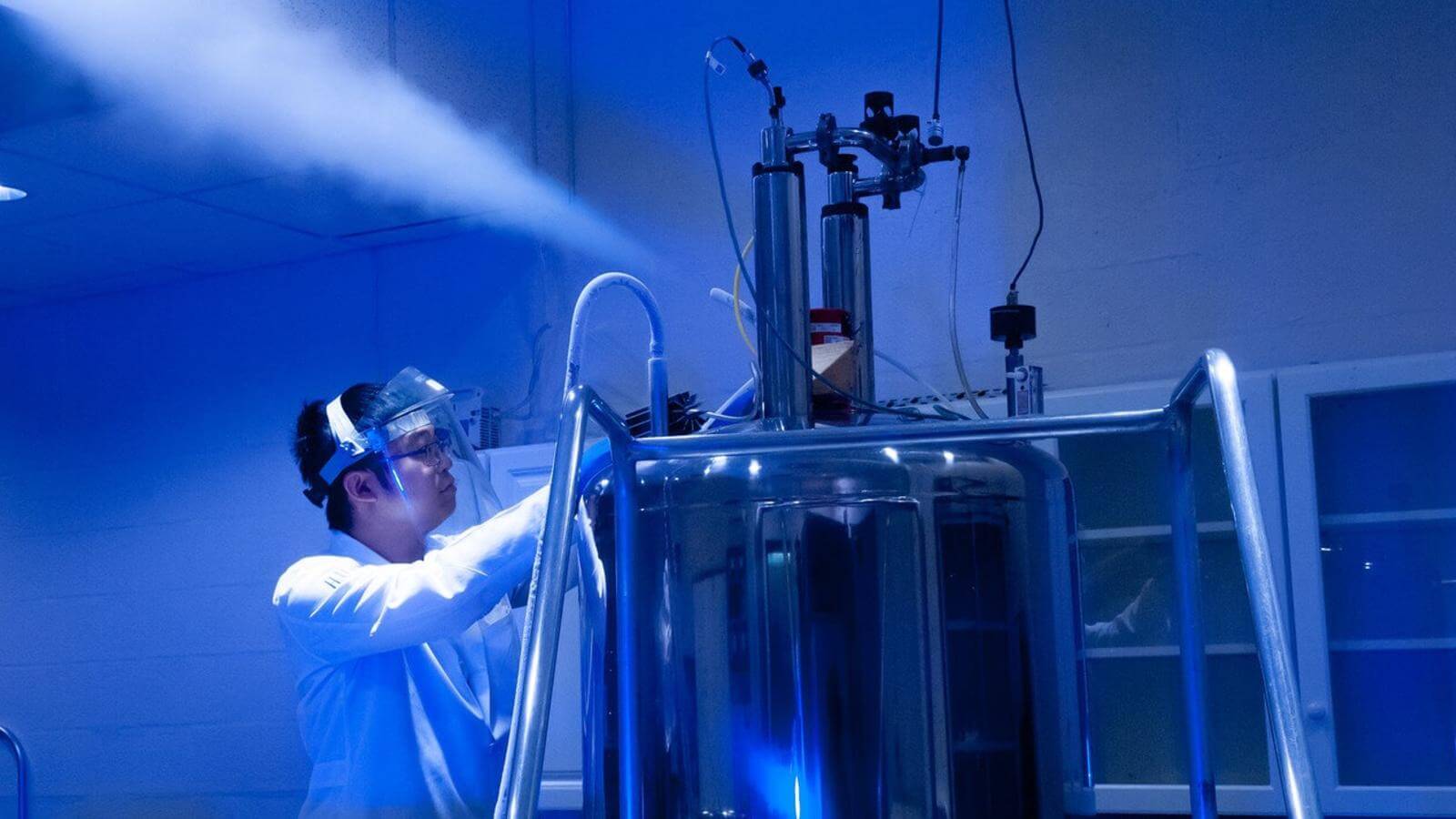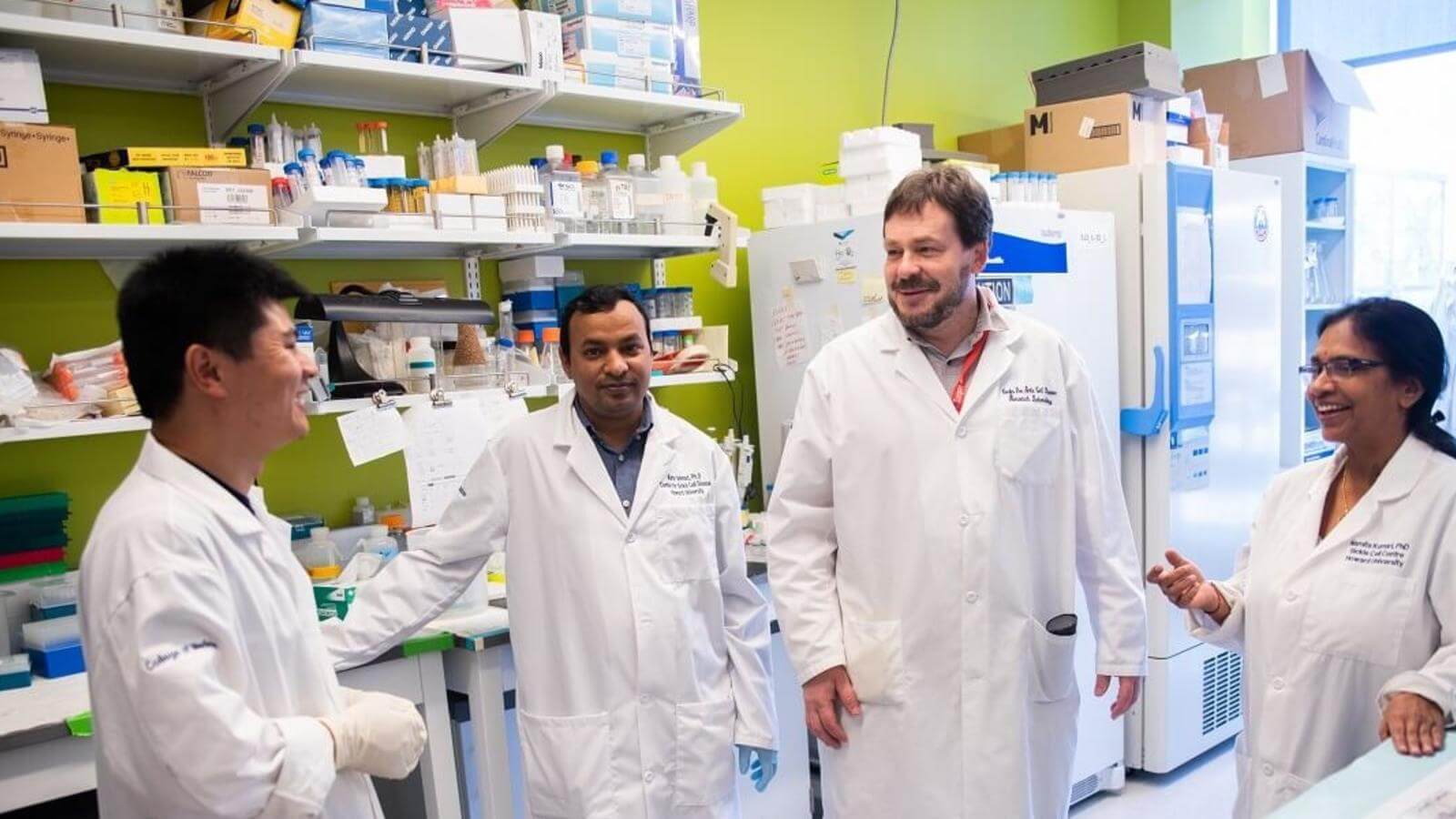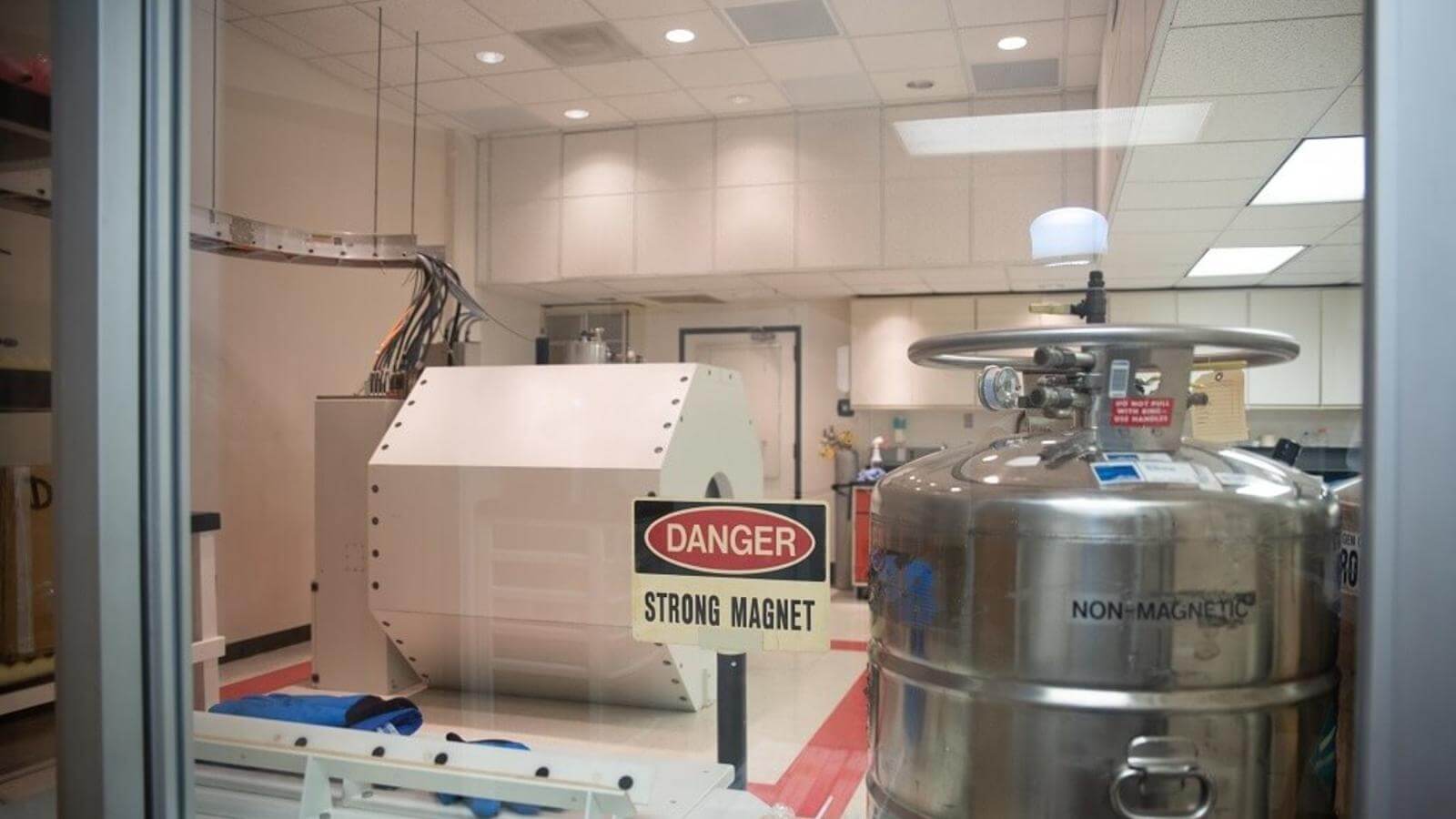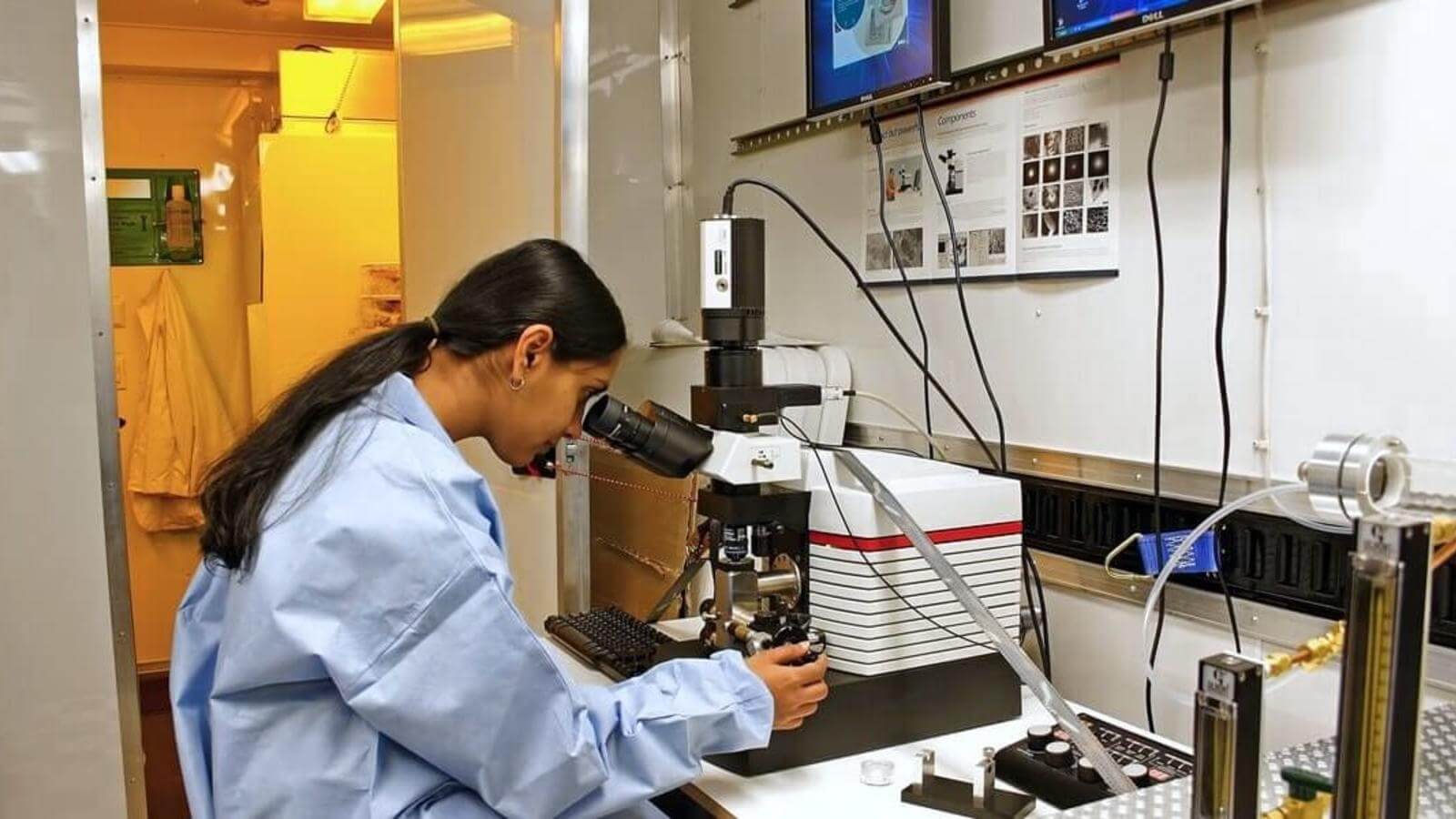Core Research Facilities
Core Research Facilities
Howard's core research facilities include state-of-the-art research resources, technologies, and instruments available to Howard investigators and collaborators across campus. These core research facilities and experienced core directors and staff support the research activities of our faculty and students. Core facilities are physically housed and administered by Howard departments, research centers, and labs. Some of those facilities are listed below.
Bioinformatics and Biometrics
Affective Biometrics Laboratory
Affective Biometrics Laboratory
Director: Dr. Gloria Washington
The Affective Biometrics Lab (ABL) at Howard seeks to investigate human emotion and identity using heart rate, skin temperature, brain waves, and body language gathered from images, video, and biological sensors. Research projects include an analysis of ear biometrics from 2-D images using advancements in deep learning; an investigation of the use of codeswitching to hide sentiment of social media data; and an NSF, Amazon, and Salesforce-funded project exploring empathy and microaggressions in person-to-person speech.
The Center for Computational Biology and Bioinformatics
The Center for Computational Biology and Bioinformatics
Director: Dr. William Southerland
The center provides the necessary human, software, and hardware resources to perform computational biomedical research on gene and protein sequence analysis, the design and development of new and improved therapeutic agents, biomolecules, and biomaterials, and the development of a better understanding of cellular processes. The laboratory supports bioinformatics and statistical genetics research, macromolecular analysis and simulation, virtual ligand screening, computational chemistry, and computational proteomics and methods development.
Biomedical, Health, and Translational Sciences
Biobehavioral Core Laboratory
Biobehavioral Core Laboratory
Core Leader: Dr. Teletia Taylor
This Biobehavioral Core Laboratory houses equipment for clinical exercise physiology and psycho-physiological research, supporting studies involving exercise/yoga interventions and psycho-oncology projects. Exercise interventions within the Core have involved aerobic exercise protocols for women at risk for breast cancer, breast cancer survivors, and men at risk for prostate cancer. The lab houses Cosmed Quark b2 metabolic and Cosmed electrocardiogram (ECG) equipment, programmed into a Burdick Treadmill to perform graded exercise tests assessing cardiovascular disease risk and functional work capacity training. An Ergoline 500 medical ergometer is used for exercise testing when a cycle ergometer is needed.
Bio-nano Interfaces, Functional Materials & Biotechnologies Laboratory
Bio-nano Interfaces, Functional Materials & Biotechnologies Laboratory
Principal Investigator: Dr. Tao Wei
The laboratory focuses on fundamental studies of interfacial phenomena (adsorption, docking, charge transfer, self-assembling, and complex gas-or liquid-surface chemical reactions) and those related to bio-nano hybrids, to develop functional materials and biotechnologies to tackle challenges in health, energy, and the environment. Research focuses on biomaterials (peptide mimics/proteins, DNA/RNA/nucleic acids, and lipids), biotechniques (biosensors, drug delivery, bioremediation, and bioenergy), polymer-nanoparticle composite materials for water treatment, and low-dimensional or nanoporous materials (such as 2D perovskite, graphene sheet(s), CNT, zeolites, and MOFs) for biosensing, energy, and pollution control. Research projects on biosensors (surface-enhanced Raman spectroscopy and dielectric spectroscopy spectrum), anti-biofouling materials, bio-nano interactions, and abiotic-biotic interfacial Redox have been funded by NSF, NASA, and DoD.
Center for Sickle Cell Disease
Center for Sickle Cell Disease
Patricia Oneal, M.D., Co-Director (Clinical) & Sergei Nekhai, Ph.D.,Co-Director
The Howard University Center for Sickle Cell Disease is committed to providing comprehensive medical care, research, testing, education, counseling, and community outreach for adults and children with sickle cell disease. The Center offers a weekly outpatient clinic for adults with sickle cell disease. It collaborates with the DC Greater Access to Pediatric Sickle Cell Services Project, which provides comprehensive care for children with sickle cell disease and other hemoglobinopathies. The Center for Sickle Cell Disease has participated in major clinical trials that have led to FDA-approved medications for sickle cell disease treatment. The Center is the Washington area’s leading provider of patient services for Sickle Cell Disease and has received a Center of Excellence grant from the District of Columbia which will fund both clinical care and a research focus on health-related outcomes.
Clive O. Callender Howard-Harvard Health Outcomes Research Center
Clive O. Callender Howard-Harvard Health Outcomes Research Center
Director: Dr. Edward Cornwell III, M.D.
From its inception, the Clive O. Callender Howard-Harvard Health Sciences Outcomes Research Center at Howard University has fostered a culture of multi-disciplinary, multi-institutional collaboration in health disparities research aimed at the study of systems that could lead to more equitable healthcare delivery. The Center, a vital component of the HU RCMI Research Infrastructure Core, has been a critical tool for Howard investigators and an effective agent in developing insight and understanding regarding the disparate outcomes associated with minority populations.
Georgetown-Howard Universities Center for Clinical and Translational Sciences
Georgetown-Howard Universities Center for Clinical and Translational Sciences
Research Collaboration
The Georgetown-Howard Universities Center for Clinical and Translational Sciences (GHUCCTS) is a multi-institutional consortium of medical research institutions, including Georgetown University, Howard University, MedStar Health Research Institute, Oak Ridge National Laboratory, and the Washington Veteran’s Affairs Medical Center, forged from a desire to promote clinical research and translational science. GHUCCTS implements research that will have a high impact on underserved communities.
Howard University Cancer Center
Howard University Cancer Center
Interim Director: Dr. Carla Williams
The Howard University Cancer Center provides research, education, and service for cancers primarily affecting African American populations. The Center excels in translational bench-to-bedside research that improves the lives of minorities and underserved populations. A partnership between Howard University Cancer Center and the Johns Hopkins Kimmel Cancer Center is dedicated to building a robust national cancer program to address the significant disparity in cancer rates and survival in minority populations.
Howard University Hospital (HUH)
Howard University Hospital (HUH)
The Howard University Hospital houses several research centers, including the Cancer Center, a Sickle Cell Center, a Diabetes Treatment Center, a kidney transplant program, and the Perinatal Diagnostic and Ultrasound Center. As a primary teaching resource, "the symbiotic relationship" between HUH and the Howard University Health Science Colleges has allowed robust medical training in 18 specialties, including residencies and fellowships in cardiology, clinical pharmacy, dermatology, endocrinology, family medicine, gastroenterology, general dentistry, general surgery, hematology, infectious disease, internal medicine, neurology, obstetrics/gynecology, ophthalmology, oral surgery, oncology, orthopedic surgery, pathology, podiatry, psychiatry, and pulmonary disease.
Data Science and Cybersecurity
Computer Networks and Distributed Systems Laboratory
Computer Networks and Distributed Systems Laboratory
Directors: Dr. Jiang Li and Dr. Legand Burge
The Computer Networks and Distributed Systems Laboratory studies various cutting-edge topics in computer networks (such as cognition-based networks) and the deployment and use issues of distributed software/hardware systems. Both theoretical and experimental aspects are implemented. Research groups collaborate on cross-cutting problems such as network security.
Cybersecurity and Wireless Networking Innovations Laboratory
Cybersecurity and Wireless Networking Innovations Laboratory
Director: Dr. Danda B. Rawat
The mission of the CWiNS lab is to advance the state-of-the-art technologies in cybersecurity and wireless networks for emerging networked cyber physical systems (smart grid, transportation, Internet of Things, UAV). The CWiNS group engages in fundamental research as well as applied research. The CWiNS lab provides a diverse and rich educational and research environment promoting interdisciplinary research projects.
Data Science and Cybersecurity Center (DSC2)
Data Science and Cybersecurity Center (DSC2)
Director: Dr. Danda B. Rawat
The Data Science and Cybersecurity Center (DSC2) at Howard brings together a group of multidisciplinary faculty and student researchers to solve critical contemporary problems related to cybersecurity and data science, contributing new research insights on cyber-actor behavior, threat modeling, and intelligence, modeling and analysis, cyber-event forecasting, cyber resilience and defense, and data science.
DoD Center of Excellence in Artificial Intelligence & Machine Learning
DoD Center of Excellence in Artificial Intelligence & Machine Learning
Director: Dr. Danda B. Rawat
The DoD Center of Excellence in Artificial Intelligence & Machine Learning (CoE-AIML) aims to explore the use of artificial intelligence (AI) and machine learning (ML) in mission-critical civilian applications and multi-domain operations. The CoE-AIML team is conducting strategic research to transform AI/ML through trustworthy, reliable, explainable, fair, robust, and secure ML algorithms and AI systems while expanding commercial, scientific, and DoD/government uses of AI/ML.
Engineering and Physical Sciences
Hardware Design Lab
Hardware Design Lab
Director: Dr. Michaela E. Amoo
This lab focused on the application-specific FPGA design for various applications, including autonomous platforms, controls, and quantum science and engineering. Equipment includes Xilinx Virtex UltraScale FPGA VCU110 development boards, Xilinx SoC Zed Boards, Xilinx Artix-7 FPGA-XC7A100T, and Intel TerAsic DE1-SoC development boards, Intel RealSense cameras, Sharp InfraRed sensors, and a 3D systems Capture Laser scanner for rapid-prototyping.
Applied Fluid Dynamics Research Laboratory (AFDRL)
Applied Fluid Dynamics Research Laboratory (AFDRL)
Director: Dr. Sonya T. Smith
The Applied Fluid Dynamics Research Laboratory provides experimental and computational fluid dynamics (CFD) solutions for fluid dynamics applications. The research involves airfoil aerodynamics, computational fluid dynamics (CFD), and unmanned air vehicle design (UAVs). Lab research includes biological fluid flow research for drug delivery and auditory mechanics. It has a 17” test-section subsonic wind tunnel for airfoil design and validation and a 125-node HPC cluster for CFD modeling.
Applied Mechanics and Materials Research Laboratory (AMMRL)
Applied Mechanics and Materials Research Laboratory (AMMRL)
Directors: Dr. Gbadebo Moses Owolabi and Dr. H.A. Whitworth
The Applied Mechanics and Materials Research Laboratory supports research in materials testing and characterization for advanced materials at various strain rates and temperatures. The lab has state-of-the-art instruments, including Hopkinson pressure bars; biaxial thermomechanical servohydraulic test systems; high-speed digital cameras; an infra-red tomography system; Nikon MA200 metallurgical microscopes, and several specimen preparation tools including Struer’s secotom-15 (for cutting sample) and labopol-5 (for polishing).
Center for Energy Systems and Control
Center for Energy Systems and Control
Director: Dr. James Momoh
The Center for Energy Systems and Control (CESaC) is an interdisciplinary research and education center that conducts pioneering research in electric energy systems and control, power, environment, economics, and energy markets for terrestrial, space, and offshore energy systems. The mission of the Center is to engage in research associated with the totality of energy systems and control and develop 21st Century leadership in developing efficient and reliable infrastructure.
Center for Integrated Quantum Materials (CIQM)
Center for Integrated Quantum Materials (CIQM)
Research Collaboration
The Center for Integrated Quantum Materials (CIQM) is NSF Science and Technology Center initiative housed at Harvard, which includes a team of scientists and educators from MIT, Howard University, Harvard University, and the Museum of Science, Boston, as well as a network of colleges throughout the greater Boston and Washington, D.C. areas. The Center explores how atomically thin two-dimensional quantum materials, topological insulators, and NV centers in diamonds can be integrated to make new devices for communications and computing in the 21st century.
Computational Physics Laboratory
Computational Physics Laboratory
Director: James V. Lindesay
The Computational Physics Laboratory projects have included relativistic scattering, black hole formation, atmospheric waves and oscillations, DNA sequencing, cellular electroporation, fluid dynamics, and electromagnetic scattering from rough surfaces. Members of the computational physics group have used standard software packages and designed special customized codes for specific applications.
Computer Simulations in Condensed Matter Core
Computer Simulations in Condensed Matter Core
Directors: Silvina M. Gatica, Pratibha Dev, and Sugata Chowdhury
The Computational Simulations in Condensed Matter group focuses on applying molecular simulation techniques, such as Monte Carlo simulation and molecular dynamics, and quantum mechanics and statistical analysis to study physical adsorption in nanoporous materials. These nano-scale studies are designed to investigate the adsorbed matter's properties and assess materials for specific applications, such as gas storage and gas separation.
Electromagnetic Imaging and Modeling Laboratory
Electromagnetic Imaging and Modeling Laboratory
Director: Dr. John M. M. Anderson
EMM focuses on detecting land mines and improvising explosive devices using forward-looking ground penetrating radar. The EMM Laboratory team members are developing new algorithms for reconstructing radar images and improved modeling methods for determining specific material properties of potential targets within a scene of interest. The Army Research Office and Army Research Laboratory support the EMM Laboratory's activities.
Motion Control and Drives Laboratory
Motion Control and Drives Laboratory
Director: Dr. Ahmed Rubaai
The Motion Control and Drives Laboratory specializes in experimental research in real-time software/hardware systems and control in various industrial systems applications. The research includes a focus on hardware-in-the-loop simulation and rapid prototyping, real-time computing software/hardware systems, advanced modeling and control techniques, digital controller prototyping, and intelligent and learning control systems, with an emphasis on emerging applications in areas ranging from robotics, mechatronics, intelligent structures, renewable energy and smart grid, factory automation, motion control business, building automation and smart homes, and power system automation.
NSF Engineering Research Center for Power Optimization for Electro-Thermal Systems
NSF Engineering Research Center for Power Optimization for Electro-Thermal Systems
Director: Dr. Sonya T. Smith, PI
Co-Directors: Dr. James Hammonds and Dr. Charles Kim
Many engineered systems develop the electrical systems first, then use these to set thermal system requirements. The Power Optimization for Electro-Thermal Systems (POETS) center's vision is one of co-design, driving synergistic thermal and electrical power for tightly constrained mobile environments to achieve increased power density across a broad array of industrial and consumer uses. The research results will enable the manufacture of lighter, more efficient power electronic systems.
Software Engineering Laboratory
Software Engineering Laboratory
Director: Dr. Harry Keeling
This lab research group analyzes, designs, and tests safe and reliable software systems. The group has published extensively in international software engineering journals and conferences. The research includes embedded and real-time systems, communications, software design techniques, user interfaces and human-computer interaction, distributed systems engineering, software measurement and quality, software testing, and requirements engineering.
Stout Infrastructure, Geotechnics and Materials (SIGMa) Laboratory
Stout Infrastructure, Geotechnics and Materials (SIGMa) Laboratory
Director: Dr. Hessam Yazdani
The interdisciplinary research at SIGMa is dedicated to enhancing the resilience of civil and marine infrastructure through developing high-performance and multifunctional materials using multiscale characterization, modeling, and AI; addressing the geotechnical aspects of infrastructure such as renewable energy sources; incorporating optimization into the design of geotechnical and structural systems, and improving the durability of civil and marine infrastructure.
Environmental and Atmospheric Sciences
Bioprocess Engineering Laboratory
Bioprocess Engineering Laboratory
Director: Dr. Solmaz Tabtabaei
Lab research is focused on developing novel catalytic processes for the sustainable production of advanced biofuels and biochemicals from biomass resources. Lab research aims to understand the fundamental processes governing biomass conversion and develop environmentally clean bio-separation technologies for concurrent recovery of high-quality food and biofuel from plant-based materials to address significant environmental sustainability and nutrition issues.
Environmental Biotechnology Laboratory
Environmental Biotechnology Laboratory
Director: Dr. Jeseth Delgado Vela
The Environmental Biotechnology Lab pairs the latest tools in molecular biology, bioinformatics, and process modeling with lab, pilot, and full-scale studies of biological treatment systems. The lab seeks to understand microbial ecology within the urban water cycle, consequently inform water treatment approaches and technology development, and harness microbial communities to improve the urban water cycle.
Environmental and Water Resources Engineering
Environmental and Water Resources Engineering
Director: Dr. Kimberly Jones
The research efforts in the Environmental and Water Resources Engineering (EWRE) group foster education and research on water quality and treatment, wastewater treatment, stormwater monitoring and quality, fate and transport of contaminants, and hazardous waste treatment. This center fosters research collaboration in fields such as nanotechnology, biotechnology, and systems engineering to prepare graduates for exciting environmental careers.
National Oceanic and Atmospheric Administration (NOAA) Center for Atmospheric Sciences & Meteorology
NOAA Cooperative Science Center for Atmospheric Sciences & Meteorology (NCAS-M)
Director: Dr. Sen Chiao
The National Oceanic and Atmospheric Administration (NOAA) Cooperative Science Center for Atmospheric Sciences & Meteorology (NCAS-M) is a cooperative partnership between lead institution Howard University and Jackson State University, the University of Puerto Rico at Mayagüez, the University of Texas at El Paso, UMD-College Park, and SUNY Albany. NCAS performs research and applications in climate, weather, and air quality prediction and analyses and aims to diversify the atmospheric and environmental sciences workforce.
Microscopy and Imaging
Biomedical/Molecular Imaging Core Facility
Biomedical/Molecular Imaging Core Facility
Director: Dr. Paul C. Wang
The Howard University Imaging Core facility is a core facility for magnetic resonance imaging and spectroscopy (MRI/MRS), positron emission tomography (PET), computed tomography (CT), and optical imaging (OI) studies. The mission of the Howard University Imaging Core is to provide state-of-the-art NMR/MRI, PET/CT, and optical imaging equipment, technical expertise, and essential imaging services, to foster multidisciplinary collaborations, and to train a new generation of scientists using modern imaging technologies to study the underlying processes of diseases that disproportionately affect minority and disadvantaged populations. The Molecular Imaging Lab provides distinct expertise in molecular biology research focused on in-vivo imaging using MRI/MRS and optical fluorescent and bioluminescent imaging. The lab uses molecular imaging techniques to study mechanisms of image contrast enhancement, improvement of sensitivity and specificity of tumor detection, and diagnostic applications. See the research efforts going on in this research facility here.
Molecular Biology and Genomics
Flow Cytometry Core Facility
Flow Cytometry Core Facility
Core Leader: Dr. Xinbin Gu
This facility is equipped with flow cytometry equipment, analysis of user-prepared samples, sorting (separation) of cell subpopulations, graphical and statistical analysis of data, archiving of flow cytometry data files, presentation graphics, training in instrument operation, and consultation in assay design. The flow cytometer is equipped with Cellquestpro. and Modifit Cellquestpro. Modfit is designed to analyze DNA histograms.
Molecular Genetics Laboratory
Molecular Genetics Laboratory
Core Leader: Dr. Georgia M. Dunston
The molecular genetics laboratory contains standard equipment necessary for large-scale, high throughput molecular analysis of DNA variation, including Transgenomics DNA Wave machines for SNP detection using dHPLC, ABI 377 automated sequencers, 10 Perkin Elmer 9700 thermocyclers, and a PSQ 96 Pyrosequencing platform for SNP genotyping. A separate tissue culture facility is available for extraction of DNA from blood samples and EBV cell transformation.
Pharmacokinetics, Proteomics, and Drug Delivery
Bioanalytical Proteomics Core Facility
Bioanalytical-Proteomics Core Facility
Director: Dr. Sergei Nekhai
The Bioanalytical Proteomics Core Facility leverages the interdisciplinary expertise of Howard clinical and translational scientists, including experts in protein biochemistry, virology, and hematology, in the analysis of protein expression by mass spectrometry and immunodetection-based methods. The facility also characterizes proteins, quantifies their expression levels, and provides small molecule analysis. The research facility has expertise in proteomics and its applications to virology, hematology, and cancer research. Read more about its research facilities here.
Biofilm Engineering and Drug Discovery (BEDD) Laboratory
Biofilm Engineering and Drug Discovery (BEDD) Laboratory
Director: Dr. Patrick Ymele-Leki
The BEDD research program focuses on the development of high‐ and low- throughput screening assays for the identification of novel small molecules with antimicrobial activity; the development of physiologically and industrially relevant multispecies in vitro biofilm models for the identification of potential drug targets; and the in vivo assessment of cytotoxicity and pharmacokinetics parameters and hypothesis‐driven validation of antimicrobial drug targets.
Biomolecular Assemblies and Nanomechanics Lab
Biomolecular Assemblies and Nanomechanics Lab
Director: Dr. Preethi Chandran
The Biomolecular Assemblies and Nanomechanics (BAN) Laboratory is interested in the engineering design behind self-assembled nanoscale structures of semiflexible biopolymers (DNA, aggrecan, collagen, etc.) and in using these nanostructures as physical containers for drug delivery and tissue regeneration. The lab developed a multi-scale modeling theory for semi-dilute biopolymers based on a string-of-continuous-beams polymer model. Research has resulted in developing an integrated approach to the study of bioassemblies, from single-molecule interactions to group polymer dynamics.




